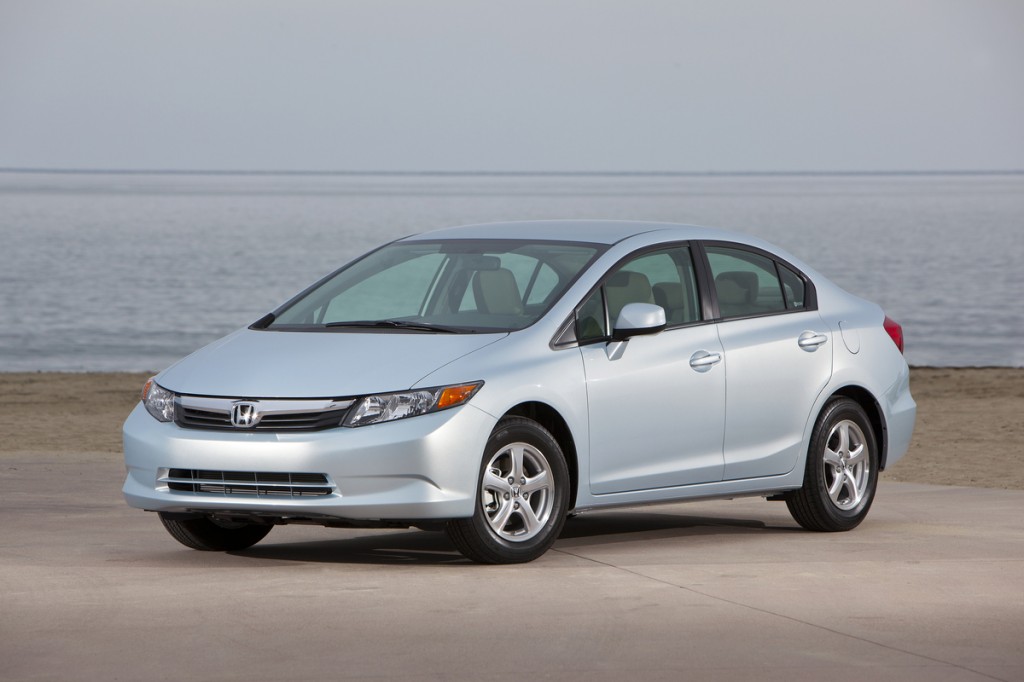Natural-gas vehicles have never had much acceptance in the North American passenger car market, and even trucks powered by it are struggling.
While natural gas is presently abundant in North America, courtesy of the controversial process of hydrofracturing ("fracking"), a new study suggests there's a better use for it than using it to power combustion-engined cars.
DON'T MISS: Why Aren't Natural Gas-Powered Long-Haul Semi Trucks Selling Better?
Researchers from Oak Ridge National Laboratories recently published a paper in the journal Energy, covered by Green Car Congress, that looked at the best uses of natural gas for transportation.
Their conclusion was that the latest natural-gas combined-cycle turbine generator technology made it more efficient to use the fuel to generate electricity to power plug-in electric cars than burning it in adapted car engines.

2012 Honda Civic Natural Gas
The Pump-To-Wheels efficiency of that use is higher than that of a passenger car--the Honda Civic Natural Gas being the best-known such vehicle.
Researchers noted, however, that using a natural-gas engine in a hybrid vehicle would raise the efficiency of the fuel use and reduce the advantage.
While Toyota showed a natural-gas powered Camry Hybrid a few years ago, no manufacturer has ever produced such a vehicle in any kind of volume.
ALSO SEE: Is Toyota Planning To Build a Camry CNG Hybrid? (Nov 2009)
The analysis used a range of efficiencies for natural gas burned in a combustion engine, and a range of electric generation efficiencies from various turbine technologies.
The study looks only at the wells-to-wheels efficiency of using the fuel itself, and omits several other factors that need to be considered.

2012 Honda Civic Natural Gas
Not included in the analysis are "the vehicle cycle—i.e., the associated energy and emissions for the battery, power electronics, and auxiliary systems found only on battery EVs and for the CNG tank and auxiliary systems only found on natural gas vehicles."
Furthermore, "The analysis did not address the vehicle cycle cradle-to-grave energy use for batteries and CNG tanks," Green Car Congress notes.
"Cost considerations on the total infrastructure or cost of ownership were also outside the scope of this work."
MORE: Where Are Natural-Gas Vehicles Most Popular And Most Numerous?
Still, with natural gas and biofuels in general struggling to gain traction in the U.S. market, the analysis offers a new way to look at how best to promote miles covered with the lowest carbon emissions.

2015 Nissan Leaf
And it inadvertently highlights one advantage of electric cars: They can be recharged using electricity generated by any number of pathways, from coal to renewable sources.
Gasoline, on the other hand, only comes from one place.
________________________________________________













